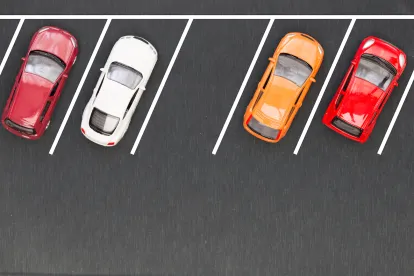The Friday after Thanksgiving, we were on our way to my mother-in-law’s house when we got a flat tire. My husband called the dealership and made an appointment to have his tire replaced the next day: “And you can confirm that you have my tire? I think my car requires a special tire? Ok, got it great, see you tomorrow morning.” Imagine his irritation, then, when he arrived at the dealer to be told, “Sorry, sir, we don’t have the right tire for you here. You’ll have to come back next week.”
Now, picture a world where you don’t even have to make an appointment—where your local dealership was automatically notified the second your tire rolled over that blasted pothole and this notification set off a chain of automated events that allowed you to bring your vehicle in at your leisure, where a brand new tire (one that fits) and a cup of coffee would be waiting for you? And the best part? The claim with your insurance company has already been submitted.
This is how the conjugation of artificial intelligence and blockchain technology is set to turn the automotive industry on its head. The inarguable “boon” of autonomous vehicles or “connected cars” is the astronomical amount of data each individual smart car can convey to manufacturers. Everything from a flat tire to the type of coffee the driver prefers can theoretically be embedded in the data collected by connected cars. The problem, of course, is how such data can be housed and effectively deployed.
While having access to this treasure trove of data might make driving—from buying to maintaining to selling—a better experience, from the car manufacturer’s perspective, so much data creates unique challenges. For instance, with the explosion of data coming from IoT (internet of things) technology, lawmakers and regulators grow increasingly more concerned with protecting individual privacy (see, e.g., the GDPR). How can auto manufacturers take advantage of this new wealth of information while not running afoul of various privacy laws? How will the data be organized, in order to ensure easy and quick access, so that mistakes like the one at my husband’s dealership (the wrong tire) don’t occur? And then, of course, how and where will such enormous amounts of data be stored without potential for corruption or hacking?
Some auto manufacturers have zeroed in on blockchain as the potential answer to these quandaries. BMW—one of the founding members of the Mobility Open Blockchain Initiative (“MOBI”)—has been experimenting with blockchain in numerous contexts. For example, BMW has piloted its “VerifyCar app,” which allows users to track and verify the complete vehicle history and share such data with third parties. Hyundai also announced a blockchain based program, designed to communicate a car’s maintenance history with a simple scan. MOBI is also working on an initiative that would allow cars to make and receive payments—for tolls, maintenance, rest stop vending machines, etc.
How does blockchain make this possible? For one, blockchain uses the highest level of cryptography (e.g., coding) to ensure that user data can remain appropriately private. The other real advantage to blockchain is incorruptibility. Hyundai, for instance, recently announced that it would be anchoring its private blockchain’s data to a public blockchain, the Aergo mainnet, in order to ensure the data’s incorruptibility. Pairing smart contracts (a feature of blockchain technology that automates various terms of a transaction) with the data derived from connected cars will also ensure that data entry errors—like the one that almost certainly led to my husband’s mishap at the dealership—are a thing of the past. So, why aren’t auto manufacturers across the globe lining up to take part in this happy marriage?
Scalability: millions of cars, each conveying terabytes of data at any given moment.
At present, the innovations surrounding blockchain technology have not been able to stay apace with the innovation in artificial intelligence and IoT. Bitcoin, the largest and most stalwart of all blockchains, continues to lumber along as it grows larger, requiring mammoth amounts of computer power and energy to maintain its impenetrability. Still, automakers—like those involved with MOBI—seem poised to tackle this challenge with enthusiasm. According to the IBM Institute for Business Value, 62% of executives in the auto industry believe that blockchain will be a disruptive force in their industry within three years. Indeed, if Hyundai’s “outside the box” problem solving—linking its private blockchain to Aergo so that it can take advantage of the robust security afforded by a public blockchain—is a sign of things to come, my bet is that this match is definitely one for the books.




 />i
/>i
